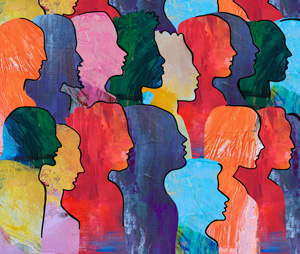
Being socially connected means having friends, family, co-workers and acquaintances who provide a sense of belonging and make you feel cared for, valued and supported. It's a vital component of your well-being.
Social isolation and loneliness increase the risk of heart disease, stroke, depression and dementia. People with meaningful social connections tend to have better physical and mental health, healthier habits and a better quality of life.
Yet, despite the prevalence of social media, 1 in 3 adults age 45 or older feels disconnected from others and alone. Major life changes, such as moving, getting a new job or retiring, can contribute to feeling lonely.
The good news is that you can take action to ease loneliness.
These steps can help you create stronger relationships to improve your health and well-being:
• Explore ways to meet new people, such as taking a class or joining a club or a professional group that's related to an interest or hobby. Being part of a group with shared interests, values or goals can create a sense of belonging.
• Volunteer with an organization in your community that interests you and fosters a spirit of helpfulness.
• If you enjoy exercising, join a gym. Even if you don't talk much during class, group exercise can foster a sense of community.
• If your busy schedule is preventing you from carving out time for others, share activities you already do—such as walking the dog—with a friend.
• If you can't meet up with people in person frequently, check in with them with a call or video chat. Regular contact helps relationships stay strong.
• If you spend time on social media, don't let it distract you from engaging with people in other ways, such as simply going out for coffee.
Creating a social network can take time, and there's no one-size-fits-all. But pushing yourself by taking even one or two action steps can help you make progress.
Sources: American Medical Association; Centers for Disease Control and Prevention